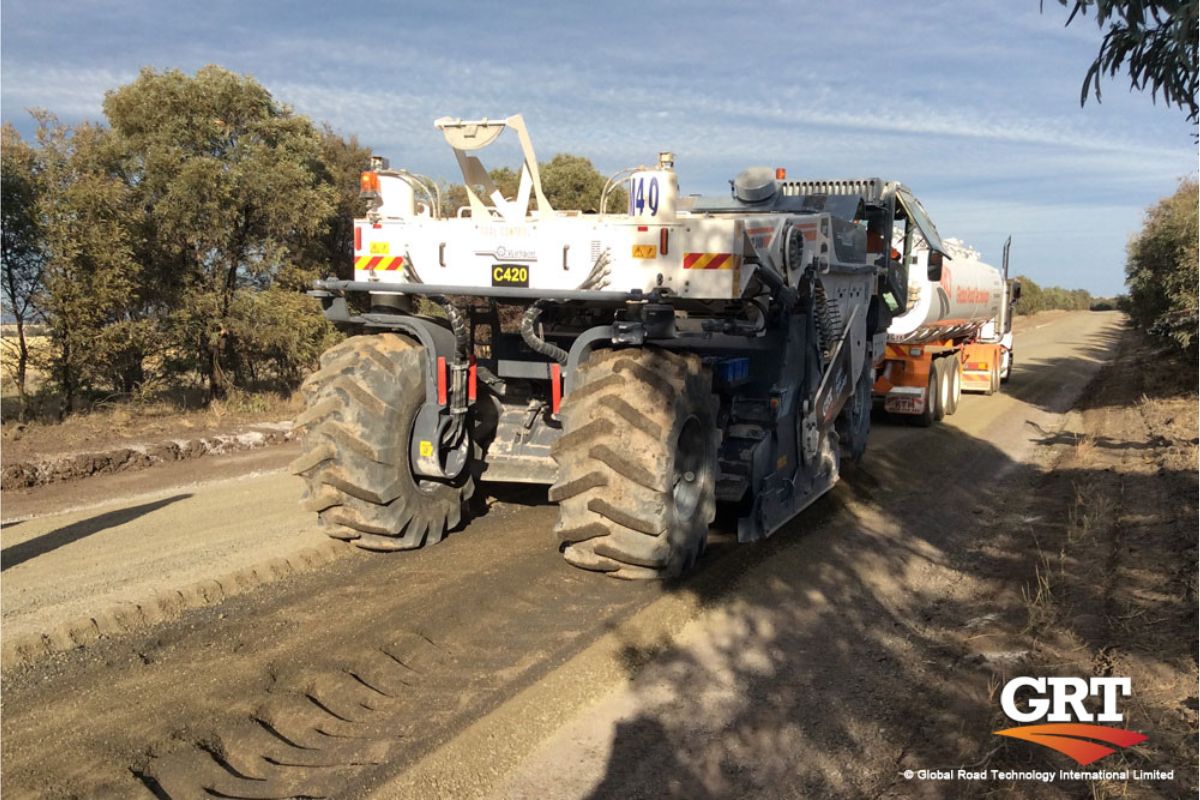
Soil stabilisation serves as a pivotal strategy in modern construction and environmental management. It tackles both soil erosion prevention and dust management effectively. This dual focus underscores the critical role of soil stabilisation in enhancing infrastructure robustness and environmental systems.
Wind or water displaces the top layer of soil, causing soil erosion and additionally, dust. This phenomenon can drastically undermine structural foundations and agricultural lands. It also leads to sedimentation in waterways, affecting aquatic habitats and water quality. Thus, combating soil erosion is crucial for maintaining ecological balance and infrastructure integrity.
Soil stabilisation plays a key role in dust suppression, especially in arid and semi-arid regions. Similarly, stabilisation techniques bind soil particles, reducing the soil’s vulnerability to wind erosion. Also, this binding effect retains the soil’s structure and significantly minimises airborne dust particles that can affect air quality and public health.
Various methods include mechanical compaction, adding vegetative cover, and applying chemical agents. Each method suits specific conditions and requirements. For instance, chemical stabilisers enhance soil cohesion effectively. Leading companies provide these products, which are pivotal in projects where traditional methods fall short.
Several case studies highlight the effectiveness of soil stabilisation. For example, advanced chemical stabilisers have significantly reduced erosion incidents at large construction sites across Australia. These examples demonstrate the practical benefits of integrating high-quality stabilisation products in both rural and urban settings.
Soil stabilisation is not just a method; it is an essential practice for sustainable development. It ensures that infrastructures endure and environments thrive. By choosing the right stabilisation techniques and products, professionals achieve lasting results, making it a cornerstone of modern environmental and also construction strategies.
Dust suppression is a critical issue in the world of mining and resources.
Learn more about GRT’s industry-leading and IoT-connected SMART Dosing Units, and discover how we’re driving better dust suppression solutions.
If you’d like to talk with an expert, simply contact us.
Your feedback matters to us.
If you enjoyed reading this Global Road Technology industry update, please let us know by leaving a REVIEW.
Are environmental regulations, health and safety concerns or potential profit loss a concern right now?
Contact Us Now